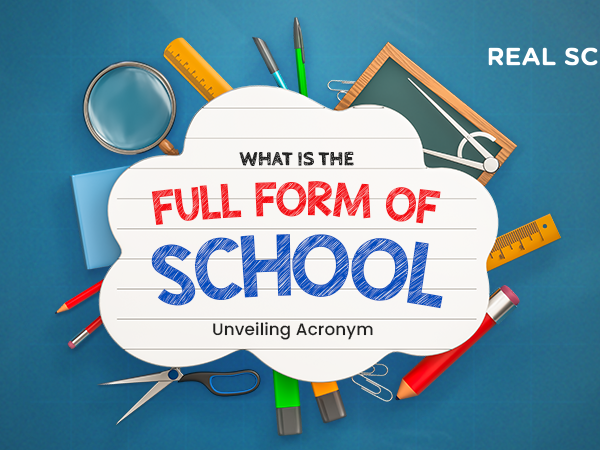English is not only the language that has become an important part of our Indian culture but it is the skill that is required by a professional person from each individual. People are very easily judged on the basis of their communication skills.
Many big celebrities who have versatility in their talent but lack communication skills have explained that they have always wanted to have a good communication skill because of only one reason, that is, if you don’t have good communication skills you are always looked down to no matter how talented you are.
Seeing this culture to save kids from such judgment parents should work towards making their child fluent in English so that they are future-ready to meet any requirement that is asked for.
Idioms and Phrases in English for Kids
Idioms and phrases are an important part of the English Language. It is imperative for the kid to understand the foundation of idioms and phrases to have a stronghold on the English language. As a parent or as a teacher you have to make sure that the child has knowledge about the idioms and phrases. Make them learn the idiom and phrases that the child can use in their day-to-day life. This will help them to understand the use of idioms and phrases. Parents can also design creative games to make the child have fun way. Making activities fun will help the child have an interest in studying for a longer period of time. In the following sessions, you will get to know the definition of idioms and phrases along with the difference between them both.
Definition of Idioms and Phrases
Idioms can be understood as phrases or expressions that fall within a language and whose significance cannot be easily predicted by the context and denotation of each part of it. Their meanings are not literally but are much more figurative. They are closely connected with the culture of the speaker.
Example
‘A blessing in disguise’
There’s something nice, but at first, it doesn’t seem so. “Rain was a blessing in disguise, the plants are rising now!”
Phrases can be explained as a statement that is a set of words used in a speech but not able to form a complete sentence alone because both a subject and a predicate are lacking. The terms work together in a phrase so that they function as a single expression variable, i.e. the words of a phrase can, when combined, become an adjective, verb, adverb, or noun.
For example:- You’re welcome
It’s the sentence that makes us feel good about what we have done,

Also Read:- Best Skills to Learn in Summer Vacation: Benefits of Summer Vacations for Kids
Useful English Phrases for Kids
There are many useful phrases to speak in English for kids that will help a child to be a better communicator. Look at the phrases:-
#1 I was Wrong
This is perhaps one of the most difficult sentences to put forth in English, but it is essential for all human relations. Hence, a child should know to acknowledge his/her mistakes and work on the mistakes. This is the first step that a child can take towards working towards her/his mistakes.
#2 You are Right
Kids, when they’ve done something wrong, they don’t realize and when they are corrected, they must learn how to tell and listen to it and later rectify the mistake. Teaching this phrase to a child will help them develop a life skill that will play a part in their learning.
#3 You are Forgiven
In any relationship, forgiveness is something that is required many times. But we really bring into our practices resulting in arguments of greater level. Forgiven somebody is a value that has to be taught to a kid since her/his childhood.
#4 You make Me Happy
This is a phrase that parents should use to make their child learn it. When they learn it through their parents they are able to understand it better and retain it for a longer period of time.
#5 I’m Sorry
Realizing one’s mistake is another thing but saying sorry to somebody for hurting them or making a mistake is a thing of sincere people. It is important to imbibe this in a kid’s mind that saying sorry when it is your mistake is okay and should be brought into a habit.
#6 What do You Think?
Are you open to thinking from another person’s perspective? If yes that’s great, but if no then do you want your kid to think from your perspective once he/she grows old? Yes definitely, but for this, you have to make the child learn to take the opinions of others by asking them “What do you think” such a habit brings harmonization in actions.

Also Read:- Why is Learning Animal Names Difficult for Kids? How to Make It Easy for Them to Learn?
Idioms for Kids to Learn
Learning idioms is fun but there are so many idioms that it is impossible for a person to learn them all unless and until the person is a superhero. But as idioms are interesting to know, you can start with easy idioms and teach them in a fun activity way like with the help of cue cards or teaching games, etc.
Let’s start with some idioms and their meanings-
#1 A little birdie told me
Someone told me a secret
#2 A bull in a china shop
Someone who is very clumsy
#3 Bee in her bonnet
She is upset
#4 Busy as a bee
To be very involved and to work hard
#5 Cat got your tongue?
Why aren’t you talking?
#6 Cool as a cucumber
To be very calm under stress
#7 Cry crocodile tears
Pretending to be upset
#8 Curiosity killed the cat
To ask too many questions will make you difficult.

Also Read:- Also Read: Opposite Words in English for Kids: Ways to Help them Improve their Vocabulary
Idioms from D- R Alphabet
#9 Different kettle of fish
Something completely different
#10 Doggy bag
A bag from a restaurant to carry the remains home
#11 Fish out of water
Being somewhere you don’t belong
#12 For the birds
Something that is not worth anything
#13 Get off your high horse
Quit thinking you are better than others
#14 Goose is cooked
You are in trouble
#15 Hold your horses
Wait a minute
#16 Horse of a different colour
A separate issue or Something that is quite different
#17 Hot dog
A person doing athletic stunts that are dangerous
#18 Let the cat out of the bag
To tell a secret
#19 Night owl
Someone who stays up late
#20 Raining cats and dogs
It is raining very hard
Conclusion
Making your child’s foundation strong is very important to make them future-ready where there is a plethora of competition. English being the language that is used worldwide it is important for the parents and teachers to focus on the child’s English. As Idioms and phrases are an important part of English, it is better than the child has been made aware of it from the beginning.
In this article, you will learn common phrases in English for kids, idioms and phrases in English for kids, and various idioms that will be fun for kids to learn. You can refer to this article and design activities to teach your kids in an interactive way.








Very helpful article for students struggling for english subject.